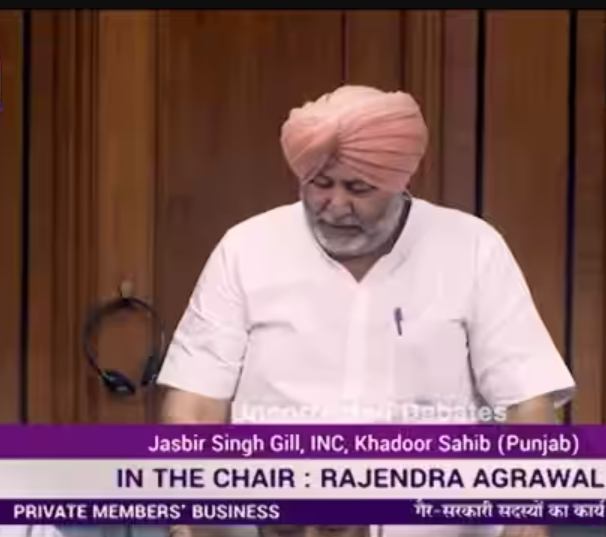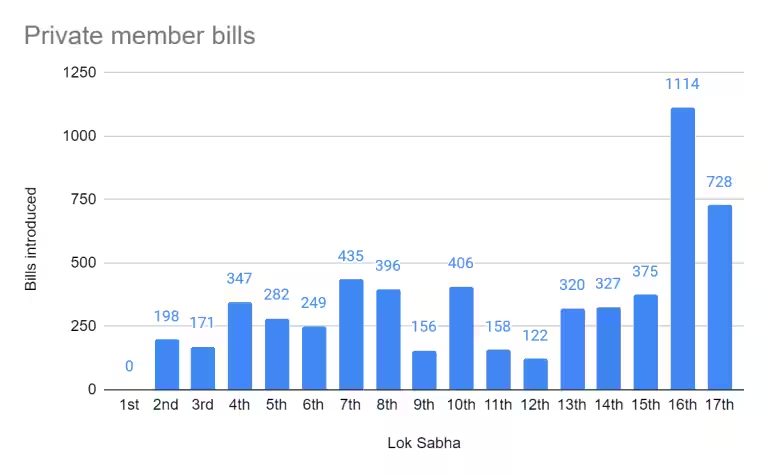
These draft laws constitute a major chunk of the legislative business of Parliament. In the 16th Lok Sabha, 1,114 Private Members’ Bills were introduced. But what is their role in our parliamentary democracy?


These draft laws constitute a major chunk of the legislative business of Parliament. In the 16th Lok Sabha, 1,114 Private Members’ Bills were introduced. But what is their role in our parliamentary democracy?
Amid the stormy exchanges during Parliament Monsoon Session, which ends on Friday, the Lok Sabha last week took up for discussion what did not seem like a pressing matter amid the other heavy subjects being discussed — curbing wasteful expenditure during weddings.
The Prevention of Wasteful Expenditure on Special Occasions Bill, 2020, which seeks to cap wedding costs, was introduced by Jasbir Singh Gill to place limitations on the number of wedding guests, the dishes to be served at weddings and the amount to be spent on gifts to the newlyweds. Gill, the MP from Khadoor Sahib in Punjab, said the Bill seeks to end the “culture of extravagant weddings”.
Explaining why he introduced the Private Members’ Bill, Gill said, “The cut in wasteful expenditure on marriages could go a long way in checking female foeticide, as a girl child then would not be seen as a burden.”
Private Members’ Bills are legislative proposals introduced by a member of the House who is not a minister (the Bills introduced by them are Government Bills). In the Lok Sabha, the House allots the last two-and-a-half hours of business every Friday for transaction of private members’ business, which includes Private Members’ Bills and Private Members’ Resolutions. In the Rajya Sabha, two-and-a-half hours every alternate Friday during a Session are generally allotted for the same.
The Rajya Sabha Secretariat handbook says the importance of Private Members’ Bills “lies in the fact that they enable legislators to draw attention to issues which might not be represented in government Bills or to highlight the issues and gaps in the existing legal framework requiring legislative intervention”.

But it is notoriously hard to push these Bills through. To date, only 14 of such Bills have become Acts. Six of the 14 Bills became law in 1956 and the last one to receive parliamentary approval was the Supreme Court (Enlargement of Criminal Appellate Jurisdiction) Bill, 1968, on August 9, 1970.
Though the last Bill to be passed by Parliament was more than five decades ago, these draft laws constitute a major chunk of legislative business. The 16th Lok Sabha saw 1,114 Private Members’ Bills being introduced. In the last 10 years, as against 78 Government Bills, 459 Private Members’ Bills have been introduced in the Rajya Sabha, the handbook notes. On December 9, 2021, more than 50 such Bills, including one seeking to revert to the ballot papers for voting, were introduced in the Lok Sabha.
The Rights of Transgender Persons Bill, 2014, was introduced as a Private Members’ Bill by MP Tiruchi Siva in the Rajya Sabha and was passed in the Upper House. It then went to the Lok Sabha. However, while discussion on this Bill was underway in the Lower House, the government introduced a “substantially identical” Bill called the Transgender Persons (Protection of Rights) Bill, 2016. The Bill was passed by Lok Sabha. In 2018, Siva’s Bill was removed from the Register of Bills in the Lower House. It eventually lapsed, as the the 16th Lok Sabha dissolved.Subsequently, the government introduced the Transgender (Protection of Rights) in the Lok Sabha. It received the assent of the Rajya Sabha and then the President, becoming an Act in 2019.